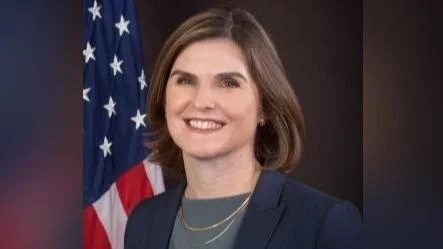A Catholic humanitarian organization operating in the Middle East is facing challenges after a significant reduction in U.S. financial aid. In February, the Trump administration announced a major cutback in the U.S. Agency for International Development, reducing over 90% of its foreign aid contracts and $60 billion in development and humanitarian assistance worldwide.
This reduction has impacted several projects involving Catholic organizations that collaborate with the United Nations Office of the High Commissioner for Refugees and the World Food Program, which are partially funded by American aid.
On April 7, WFP head Cindy McCain warned that the cuts "will deepen hunger, fuel instability, and make the world far less safe," according to a post on X.
Father Michel Abboud, president of Caritas Lebanon, described the cessation of U.S. humanitarian aid as "alarming." He noted, “We are all shocked and surprised. If we had been prepared for such a decision, we could find another source for our projects and necessary budget, but these have been severe decisions,” said Father Abboud from Beirut.
However, on April 10, Father Abboud expressed relief over the Trump administration’s decision to reinstate some previously canceled U.S. foreign aid programs for emergency food assistance via WFP. “This is good news for us,” he commented regarding the administration's reversal, which initially affected operations in Lebanon, Jordan, Syria, and other countries.
With WFP's partnership, Caritas Lebanon provides substantial food aid including hot meals and food parcels to conflict-displaced individuals in Lebanon. Father Abboud questioned, “Working with WFP, we have been providing critical food aid also to many poor Lebanese. If we stop now, how will they be able to find food from another source?”
The withdrawal of U.S. funding is also affecting the agency’s work with UNHCR, leading to a 10% budget cut for Caritas Lebanon's operations in Lebanon and Jordan. Critical services like education, primary health care, and child protection are at risk, noted Father Abboud. The cut has impacted over 2,000 individuals who were previously supported by UNHCR collaborations.
Lebanon hosts approximately 1.5 million registered Syrian refugees among its population of 5.7 million, with many more residing without paperwork. Father Abboud remarked, “The decisions taken are creating the ‘new poor’ in Lebanon because we already have people without work."
Caritas Jordan has also experienced a 70% reduction in UNHCR assistance. Wael Suleiman, general director of Caritas Jordan, stated, “We are still in negotiations with our partners. We will be meeting with UNHCR and then we will know what to do.” He added, “Anybody can close a door. But I can tell you a secret: God can open 100 doors afterwards.”
Though the current situation poses challenges due to funding shortages, Caritas Jordan remains hopeful for solutions. Suleiman expressed, “But nevertheless, we believe that we can find a solution as Caritas is depending only on God.”
Writer Dale Gavlak reported this story for OSV News from Amman, Jordan.
 Alerts Sign-up
Alerts Sign-up





